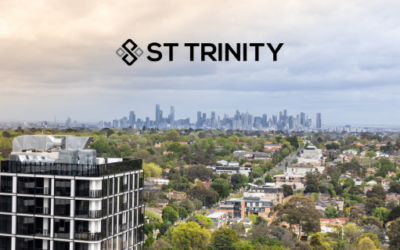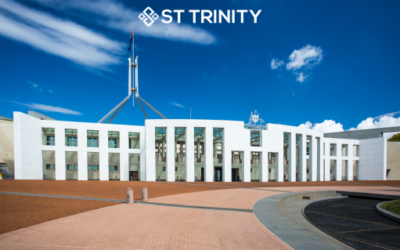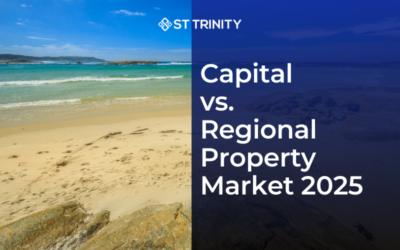The Queensland property market continues to attract property investors seeking stable returns and capital growth. In 2024, a unique opportunity has emerged that offers not only financial rewards but also the chance to make a positive social impact—NDIS property investment. This article explores why NDIS property investment is a goldmine for investors, particularly in Queensland, and provides detailed insights backed by recent data and trends.

Table of Contents
NDIS Explained: A Growing Market with Stable Demand
The National Disability Insurance Scheme (NDIS) is a government-funded program supporting Australians with disabilities. A crucial aspect of this support is Specialist Disability Accommodation (SDA). SDA housing provides accessible and appropriate homes for individuals requiring features beyond those found in standard dwellings.
The NDIS is a rapidly growing program. According to the latest NDIS Quarterly Report (December 2023), the number of participants receiving support has reached over 630,000 nationwide, with a 15% annual increase in those requiring SDA support (NDIS Quarterly Report 2023-2024) (NDIS). This growth translates into a significant and ongoing demand for SDA housing across Australia.
Queensland: A Booming Market for NDIS Property Investment

Queensland is at the forefront of this growth. A report by the Queensland government in 2023 revealed that the state has the second-highest number of NDIS participants nationally, with over 130,000 individuals receiving support. This demand is further fueled by an undersupply of suitable SDA housing.
High Demand and Low Supply
Despite the increase in SDA dwellings, with enrolled properties growing from 4,921 to 8,886 between 2021 and 2023, the supply remains inadequate to meet the burgeoning demand. The SDA market is expected to need thousands more units by 2032 to accommodate projected participant growth, creating a prime opportunity for new developments.
Firstly, Queensland’s population growth is one of the highest in Australia, driven by interstate migration and a robust economy. According to recent statistics, Brisbane alone is expected to add approximately 1.2 million people by 2041, increasing the demand for all types of housing, including SDA properties. This demographic trend is supported by the state’s commitment to infrastructure development, such as the Brisbane Metro and Cross River Rail projects, which enhance accessibility and livability, making it an attractive location for NDIS participants.
Moreover, the Queensland government has shown strong support for the NDIS, offering various incentives and streamlined approval processes for SDA developments. These government initiatives not only reduce the financial burden on investors but also ensure a quicker turnaround for property development and rental income generation.
In addition, the high demand for accessible housing in Queensland is fueled by a significant aging population and increasing awareness of disability rights. This demographic shift ensures that the demand for SDA housing will continue to grow, providing long-term rental income stability for investors. Furthermore, Queensland’s relatively affordable property prices compared to other major Australian cities allow investors to enter the market at a lower cost, while still achieving high rental yields.
Financial Advantages of NDIS Property Investment
For property investors, NDIS investment presents a compelling proposition:
a) Stable, Government-Backed Rent
Unlike traditional rentals, NDIS tenancies are secured through agreements with the National Disability Insurance Agency (NDIA). This translates to long-term leases and reduced vacancy risks (NDIS Property Australia). The stability of this income is further enhanced by long-term head-lease agreements, often spanning up to 20 years, providing a level of security rarely seen in traditional real estate investments.
b) Attractive Rental Yields
Reports by NDIS property investment firms suggest gross rental yields for SDA properties in Queensland can range from 10% to 15%, significantly higher than the average rental yields in major Queensland cities like Brisbane (around 4%) (NDIS Property Australia). This higher yield is driven by the specialized nature of SDA properties and the stable NDIS rental income.
c) Indexation of Rent
NDIS rental rates are indexed annually to inflation, ensuring your income keeps pace with the rising cost of living. This annual adjustment enhances the financial attractiveness of SDA investments by providing a predictable and steady increase in rental income (NDIS Property Australia).
Data-Driven Insights: Quantifying the Potential
Let’s delve deeper into the numbers to showcase the potential returns. Imagine you invest in a newly built, high-quality SDA property in Queensland valued at $700,000. Here’s a simplified breakdown of the potential financial benefits:
- Gross Rental Yield: Assuming a conservative 6% gross rental yield, you could expect to receive an annual income of around $42,000.
- Indexation: With an annual indexation of 2.5% (based on historical inflation data), your rental income could grow to over $45,000 within three years.
- Long-Term Appreciation: Queensland’s property market has a history of steady growth. Real estate analysts predict continued price increases in the coming years, potentially boosting the value of your investment.
Beyond the Numbers: The Social Impact of NDIS Investment
While the financial rewards are significant, NDIS property investment offers a deeper sense of purpose. By providing much-needed SDA housing, you contribute to:
- Improved Quality of Life for NDIS Participants: Accessible and well-designed housing empowers individuals with disabilities to live more independently and achieve greater social inclusion. This empowerment can significantly improve their quality of life and personal fulfillment.
- Reduced Strain on the System: Investing in SDA housing helps alleviate the current undersupply and ensures NDIS participants have access to suitable accommodation. This reduces the strain on public resources and enhances the overall efficiency of the NDIS.
- Promoting Community Integration: SDA housing fosters community integration by situating individuals with disabilities in residential areas alongside their peers. This integration not only enhances social interactions but also promotes a sense of belonging and acceptance within the broader community. It encourages social participation and mutual support networks, which are crucial for overall well-being.
- Supporting Caregivers and Families: Accessible housing provided through NDIS investments relieves caregivers and families of the constant strain and worry associated with finding suitable accommodation for their loved ones with disabilities. By offering secure and appropriate housing options, NDIS investments enable families to focus more on providing emotional and practical support, thereby strengthening family dynamics and reducing caregiver burnout.
- Driving Economic Benefits: Beyond its social benefits, NDIS investment contributes to economic growth by stimulating employment in construction, property management, and allied healthcare sectors. The development and maintenance of SDA properties create job opportunities, from architects and builders to disability support workers. This economic ripple effect not only supports local businesses but also enriches the overall community fabric by fostering a diverse and inclusive workforce. Thus, NDIS investment not only improves lives but also contributes positively to the broader economy.
Considerations Before You Invest
NDIS property investment is not without its considerations. Here are some key points to keep in mind:
- Specialist Requirements
SDA housing needs to comply with specific design guidelines to cater to the needs of tenants with disabilities. Construction costs may be slightly higher than standard properties, but these costs are offset by higher rental yields and long-term lease agreements. Reach out to St Trinity NDIS SDA Property investment professionals to plan and execute your investment in NDIS Property.
- Tenant Management
NDIS tenants may require additional support services. Working with a reputable property management company experienced in NDIS can ensure a smooth experience for both investors and tenants. Effective property management is crucial to maintaining high standards and meeting the evolving needs of tenants (NDIS Property Australia).
- Long-Term Investment
NDIS properties are considered long-term investments. While some lenders offer short-term financing options, consider your investment timeline before committing. This long-term commitment often results in sustainable financial returns and property value appreciation.
Investing in NDIS Properties: Getting Started in Queensland
If you’re interested in exploring NDIS property investment in Queensland, here are some initial steps:
Research
Familiarize yourself with the NDIS and SDA housing requirements. The NDIS Commission website offers valuable resources and guidelines to help you understand the market (NDIS).
Connect with Experts
Seek guidance from reputable NDIS property investment firms in Queensland. Look for firms with experience in the local market and a proven track record. These experts can provide insights into the best locations and property types for investment.
Financial Planning
Consult a financial advisor to assess your investment goals and determine if NDIS property investment aligns with your financial strategy. Proper financial planning can help you maximize your returns and manage risks effectively.
Conclusion
Investing in NDIS properties in Queensland presents a unique opportunity to achieve strong financial returns while making a positive social impact. The combination of high demand, government support, attractive yields, and the potential for capital growth makes NDIS property investment a highly attractive option for property investors. By conducting thorough market research, ensuring compliance, and committing to long-term management, investors can unlock substantial value and contribute to a socially beneficial cause.
Queensland’s thriving economic environment, supportive government policies, and growing demand for accessible housing make it an ideal location for NDIS property investment. For those looking to diversify their portfolio and achieve sustainable returns, the NDIS property market in Queensland is indeed a goldmine.
Investors are encouraged to stay informed about the latest developments in the NDIS market, engage with experienced professionals, and leverage government incentives to maximize their investment potential. With the current undersupply and increasing demand for SDA housing, now is the opportune time to invest in NDIS properties in Queensland.
Frequently Asked Questions (FAQs)
1. What is the NDIS?
The National Disability Insurance Scheme (NDIS) is an Australian government initiative supporting people with disabilities by funding necessary services and support, including Specialist Disability Accommodation (SDA).
2. Why should I consider investing in NDIS properties in Queensland?
Investing in NDIS properties in Queensland offers a unique opportunity for stable rental income and potential capital growth. With high demand and government support, these properties can provide attractive financial returns while making a positive social impact.
3. How does NDIS property investment differ from traditional property investment?
Unlike traditional rentals, NDIS properties offer long-term leases backed by the National Disability Insurance Agency (NDIA). This ensures stable rental income with reduced vacancy risks and annual rent indexation to inflation.
4. What are the financial benefits of investing in NDIS properties?
NDIS properties in Queensland typically yield higher rental returns compared to traditional residential properties, ranging from 10% to 15%. Additionally, rental income is secured through long-term agreements, providing investors with financial stability and growth potential.
5. Are there specific requirements for NDIS properties?
Yes, NDIS properties must meet specific design standards to cater to the needs of people with disabilities. While initial construction costs may be higher, these are offset by the higher rental yields and ongoing demand for accessible housing.
6. How can I ensure effective management of NDIS properties?
It’s crucial to work with experienced property management companies familiar with NDIS requirements. These firms can ensure compliance with regulations, provide necessary support services for tenants, and maintain high standards of property management.
7. What government support is available for NDIS property investors in Queensland?
The Queensland government offers various incentives and streamlined approval processes for SDA developments. These initiatives reduce financial burdens on investors and support quicker turnaround times for property development.
8. What is the long-term outlook for NDIS property investment in Queensland?
Queensland’s growing population, coupled with an aging demographic and increasing awareness of disability rights, ensures sustained demand for SDA housing. This long-term demand contributes to stable rental income and potential property value appreciation.
9. What are the risks associated with investing in NDIS properties?
While NDIS properties offer stable returns, investors should consider the specialized nature of these investments and ensure they meet ongoing compliance and management requirements. Long-term commitment and thorough due diligence are essential.
10. How can I get started with NDIS property investment in Queensland?
Begin by researching the NDIS market and consulting with experienced investment firms familiar with Queensland’s property landscape. Conduct thorough financial planning to align your investment goals with the potential returns and social impact of NDIS property investment.




